| This article is part of a series on the |
| Politics of the People's Republic of Bangladesh |
|---|
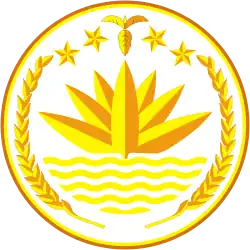 |
|
|
|
|
This article presents a list of cities and towns in Bangladesh. According to the Bangladesh Bureau of Statistics and the Ministry of Local Government, Rural Development and Co-operatives of Bangladesh, there are 532 urban centres in Bangladesh.[1][2]
The bureau defines an urban centre with a population of 100,000 or more as a "city". Altogether, there are 43 such cities in Bangladesh. 11 of these cities can be considered major cities as these are governed by City Corporations. All of the City Corporation-governed cities currently have a population of more than 200,000, which is not a criterion for the status, because currently 17 cities in Bangladesh have a population of more than 200,000. Besides the 11 major cities, there are 36 other cities in Bangladesh that are not governed by "City Corporations", rather by "Municipal Corporations". A city with a population of more than 10,000,000 is defined by the bureau as a megacity. Dhaka is the only megacity in Bangladesh according to this definition.[3] Together, Dhaka and the port city of Chittagong account for 48% of the country's urban population.[4]
An urban centre with a population of less than 100,000 is defined as a "town". In total, there are 490 such towns in Bangladesh.[3] Among these, 287 towns are governed by "Municipal Corporations". These are called "Paurashava"s in the local Bengali language. Altogether, including the ones governing the 32 other non-major cities, there are 318 Municipal Corporations.
In addition, there are another 203 towns which are Upazila centres (and other urban centres) and not governed by any Municipal Corporation or "Paurashava". These are the non-Municipal Corporation or "non-Paurashava" towns.[3][2]
In 1951, Bangladesh was mostly a rural country and only 4% of the population lived in urban centres. The urban population rose to 20% in 1991 and to 24% by 2001. In 2011, Bangladesh had an urban population of 28% and the rate of urban population growth was estimated at 2.8%.[3] At this growth rate, Bangladesh's urban population would reach 79 million or 42% of the population by 2035. The urban centers of Bangladesh have a combined area of about 10600 square kilometers, which is 7% of the total area of Bangladesh. As such, Bangladesh has a very high urban population density: 4028 persons per square kilometer (2011), whereas the rural density is significantly lower: 790 persons per square kilometer (2011).[1] The number of municipalities tripled from 104 municipalities in 1991 to 318 municipalities in 2011.[4]
Major cities
There are eleven major cities in Bangladesh that are governed by twelve city corporations, which include Dhaka North, Dhaka South, Chattogram, Khulna, Sylhet, Rajshahi, Mymensingh, Rangpur, Barisal, Cumilla, Gazipur, and Narayanganj. Among these, Dhaka is a megacity, governed by two city corporations, and has a population of more than 10 million.[5] It was formerly governed by the Dhaka City Corporation, until it was split into North and South in 2011. The populations of the cities in the table below are from the 2022 census.
| Rank | City | Area(km2)[3] | Population (2022)[6] | District | Division | Photos |
|---|---|---|---|---|---|---|
| 1 | Dhaka | 306 | 21,278,882 | Dhaka | Dhaka Division |  |
| 2 | Chattogram | 155 | 8,254,000 | Chattogram | Chattogram Division |  |
| 3 | Khulna | 51 | 718,735 | Khulna | Khulna Division |  |
| 4 | Rajshahi | 42 | 552,791 | Rajshahi | Rajshahi Division |  |
| 5 | Gazipur | 47 | 2,674,697 | Gazipur | Dhaka Division | 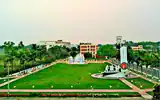 |
| 6 | Sylhet | 49 | 544,426 | Sylhet | Sylhet Division | 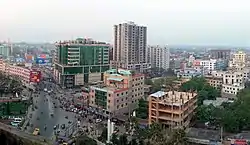 |
| 7 | Mymensingh | 90 | 576,722 | Mymensingh | Mymensingh Division |  |
| 8 | Rangpur | 69 | 708,384 | Rangpur | Rangpur Division |  |
| 9 | Cumilla | 50 | 439,414 | Cumilla | Chattogram Division | -01.jpg.webp) |
| 10 | Barisal | 51 | 419,351 | Barisal | Barisal Division | 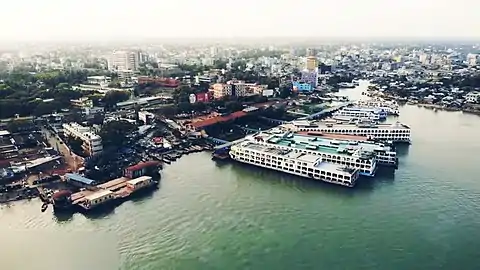 |
| 11 | Narayanganj | 13 | 967,724 | Narayanganj | Dhaka Division | .jpg.webp) |
Metropolitan areas
All eleven of the aforementioned major cities are designated as metropolitan areas: Dhaka, Chittagong, Khulna, Sylhet, Rajshahi, Mymensingh, Barisal, Rangpur, Cumilla, Narayanganj and Gazipur. Metropolitan areas can be loosely defined as a major city combined with some of its adjacent municipalities and peri-urban areas.
Cities
In addition to the 11 major cities governed by City Corporations, there are 36 other cities which are governed by Municipal Corporations. 25 of these are given below in alphabetical order.
Source: 2011 Bangladesh census[7]
Towns
The following is a list of towns in Bangladesh governed by Municipal Corporations.
| Division | Number | Towns |
|---|---|---|
| Dhaka Division | 23 | |
| Chattogram Division | 31 | Raipur |
| Sylhet Division | 20 |
Municipalities of Habiganj District
|
| Khulna Division | 24 | |
| Barishal Division | 23 | |
| Mymensingh Division | 25 | |
| Rajshahi Division | 15 | |
| Rangpur Division | 14 | |
Urban areas by population
Dhaka is by far the largest urban area as well as the largest metropolitan area in Bangladesh. Chittagong is the second largest city and urban area in Bangladesh as well as the second largest metropolitan in Bangladesh.
Khulna is the third largest city and second largest port city of the country after Chittagong. Also, the adjoining areas of Khulna are abided by port-related business, industry, governmental foreign investment, and some well-known mega projects. This city also has a rich history of industrialization through the British period. Khulna has also a significant number of tourism industries centered on the largest mangrove forest of the world, the Sundarbans. Sylhet city is also the third developed city within Khulna and Rajshahi. Sylhet is also marked as an economically stronger city compared to other cities after Dhaka and Chittagong. Sylhet city also got a richer regional economy for remittances and the tourism industry. Rajshahi is also a big city and is known as the educational city of Bangladesh due to its well-marked educational institutions with better results and better educational performances. So we can say that the best 5 cities in Bangladesh are Dhaka, Chittagong, Sylhet, Khulna, and Rajshahi. Other major cities with a stronger economy and developer infrastructure after these five best cities are Cumilla, Bogra, Rangpur, Tangail, Faridpur, Barishal, Gazipur, Narayanganj, Jessore, Kushtia, Patuakhali, Feni, Cox's Bazar, Mymenshing, Dinajpur, Pabna, Brahmanbaria, Narsingdi, Bholo, Gopalganj, Thakurgao, Chuadanga, Madaripur, etc.
The following table shows the largest populated area within a local government area.
See also
References
- 1 2 About Us, Local Government Engineering Department, Ministry of Local Government, Bangladesh, archived from the original on 9 October 2018, retrieved 9 October 2018
- 1 2 Statistical Pocketbook Bangladesh 2017 (PDF), Bangladesh Bureau of Statistics, 2018
- 1 2 3 4 5 Population and Housing Census 2011 - Volume 3: Urban Area Report (PDF), Bangladesh Bureau of Statistics, August 2014, pp. ix, xi, 24–26, 167
- 1 2 Elisa Muzzini; Gabriela Aparicio (11 April 2013), Bangladesh: The Path to Middle-Income Status from an Urban Perspective, World Bank Publications, p. 51
- ↑ "Dhaka polulace crosses 1 crore". 27 July 2022. Retrieved 1 September 2022.
- ↑ POPULATION & HOUSING CENSUS 2022 - PRELIMINARY REPORT (PDF), BANGLADESH BUREAU OF STATISTICS, STATISTICS AND INFORMATICS DIVISION, MINISTRY OF PLANNING, POPULATION & HOUSING CENSUS 2022, GOVERNMENT OF THE PEOPLE’S REPUBLIC OF BANGLADESH
- ↑ "Population Census 2011: National Volume-3: Urban Area Report" (PDF). Bangladesh Bureau of Statistics. pp. 24–25. Retrieved 26 September 2017.




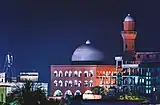



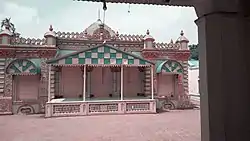
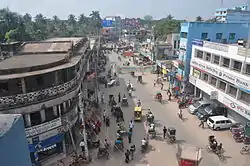
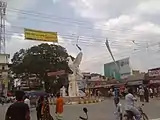

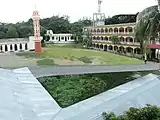

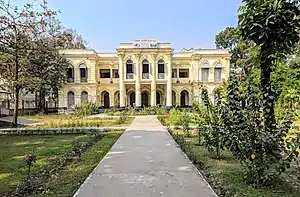
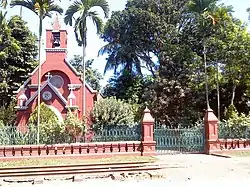
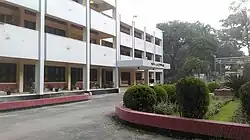
.jpg.webp)

